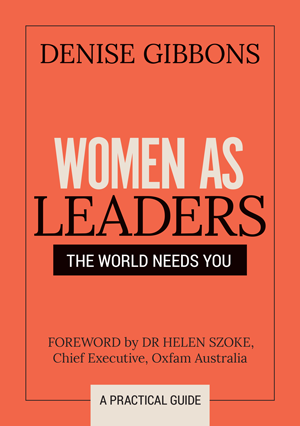Stranger Danger or Unconscious Bias?
The task that remains is to cope with our interdependence – to see ourselves reflected in every other human being and to respect and honour our differences.
Melba Pattillo Beals
One day a client of mine invited my family to attend one of my client’s annual cultural events. Every year they ran an Australian-wide football (soccer) tournament for their community and this year it was being held in Brisbane.
I was really honoured to be asked. I admired this client enormously because they were family oriented and worked so hard to provide the best for their family. Every generation was respectfully included in that family unit and everyone played their part. It was a totally different concept to what I had experienced as an Australian born family member.
My client was born in India and he was part of the Sikh religious community. He chose not to wear the turban, but his father did.
As the day arrived, I was excited. I’ve always loved discovering different cultures and ways of life. When we arrived at the park where the football tournament was being held, I experienced a whole different emotion than excitement.
You see my family stood out like a sore thumb. We were the only white Australian family that I could see in this sea of turbans and darker skinned people. The women were exotically dressed, and everyone was participating and enjoying the day.
It was my first experience at feeling like a minority group culturally. I had experienced feeling like a minority in the gender context because I was part of a male-dominated profession – accounting. However, I had never experienced the shock of having different coloured skin, dress, language and manner on such a scale.
I became apprehensive, nervous and uncomfortable. I felt like I didn’t know how to act or what to say. I wanted to leave because I felt that I had put my family under threat. Yes, I know – totally illogical, stupid and unhelpful.
Logically I knew from my client experience that you could not find a more loving, caring and sharing community than the Sikh Indian community. Logic had left the park for me though.
Tentatively, we moved around through the crowd looking for my client. This was a time before mobile phones, so I couldn’t phone to ask him where they were. Anyway, they were all having such a good time enjoying the day, I doubt he would have heard the phone. Enjoyment was so high for the community that we were hardly even noticed.
We finally left because it was impossible to find my client and we felt so out of place and uncomfortable. My client was extremely disappointed when I told him that I was unable to find him or his family. I didn’t tell him my personal reaction because I was too embarrassed to disclose this.
I tell this story because there are so many life situations where we turn away from people because we perceive they are a threat and we judge their way of life based on our societal norms. In extreme cases such as the holocaust by Nazi Germany to the Jewish community, we can demonise and de-humanise to justify ethnic cleansing.
This day for me was a small sample of so many situations that many of our community experience every day. Some examples – our aboriginal community in a predominantly white culture, our migrants in a predominately white culture, women or men in gender minorities.
Unconscious or implicit bias is a human condition. As the Neuroleadership Institute says if you have a brain then you are biased. Awareness and insight such as my understanding learned from my life event helps to create new ways of thinking that can mitigate our biases.
However, many of our work cultures are full of entrenched biased behaviours that are limiting the potential of people.
In the women’s leadership space there was a new study from the University of Sydney’s Women, Work & Leadership Group that looked at the investment management sector and concluded that there was entrenched inequality for women in this sector. There is also continued debate at the federal parliamentary level about the workplace culture for women in federal parliament.
The discussion about unconscious bias needs to be continued loud and long and we need to be looking for ways to mitigate it so that we bring out the best in every person and have exciting, innovative and supportive work environments for all of us to attend.
My research in the women’s leadership space indicates that there needs to be extra mentoring and support for women because of the entrenched views of where women fit in society.
At the personal level, take the time to consider your reactions to the people around you and whether you are labeling them as “stranger danger” when really it is just your own unconscious bias at work. I know that I’m much more aware now after my life event.
Remember all of this and much, much more is provided in my Women’s Empowerment and Leadership Program. The next program is on 4th and 5th October, 2018.


